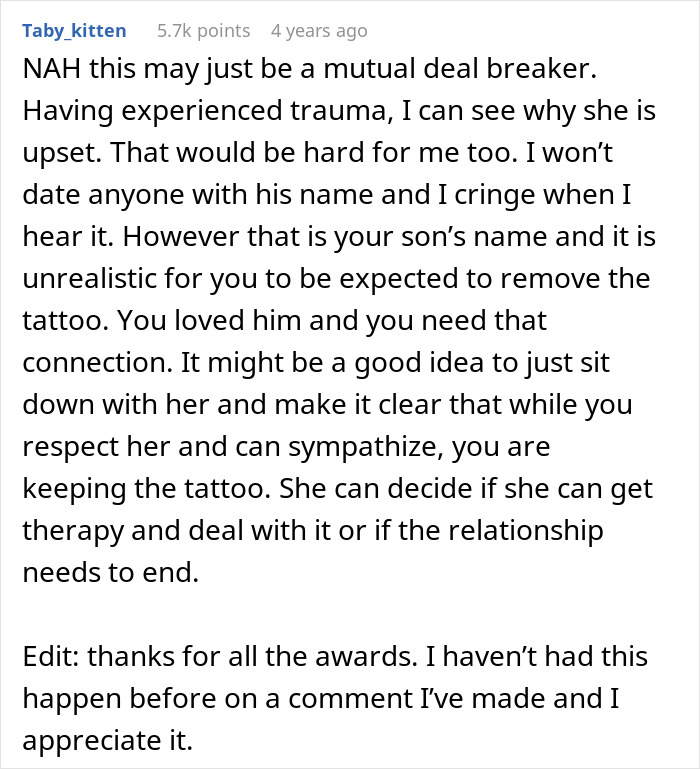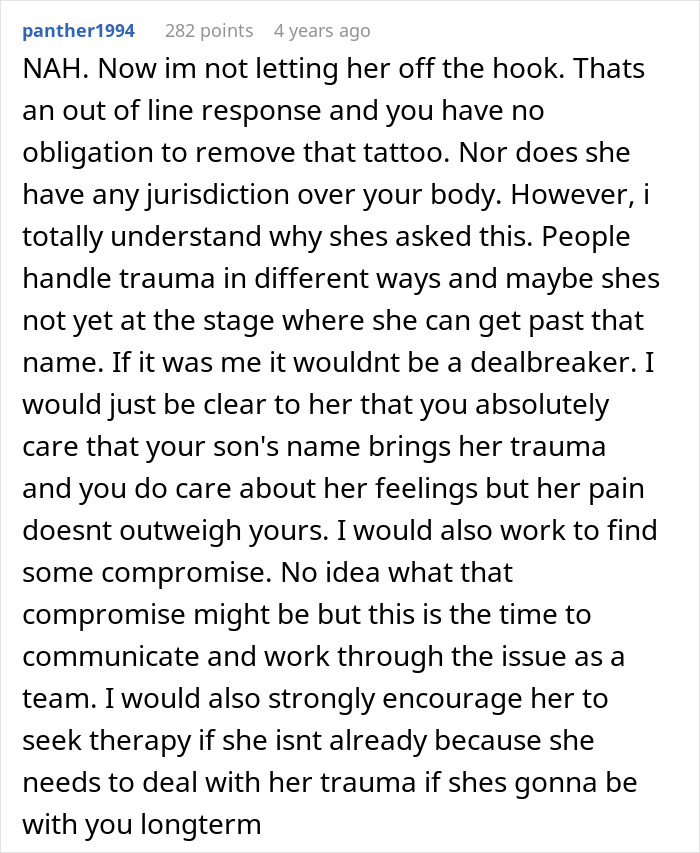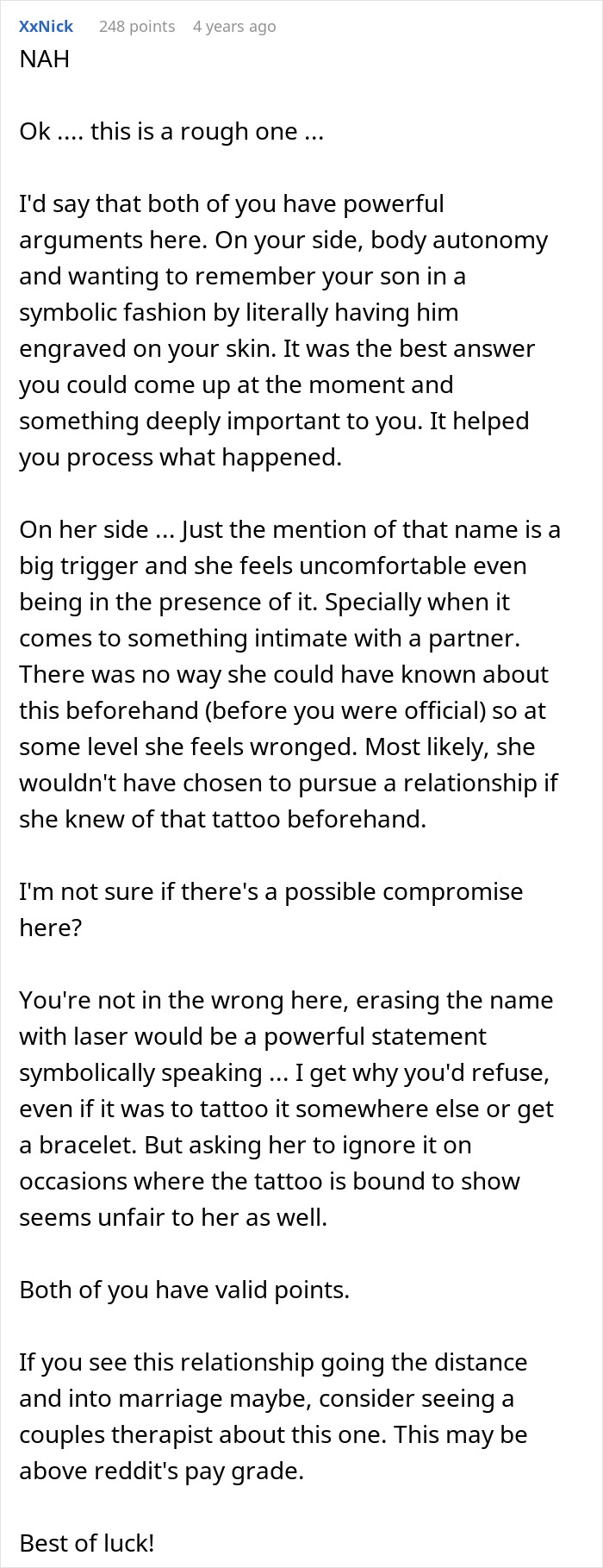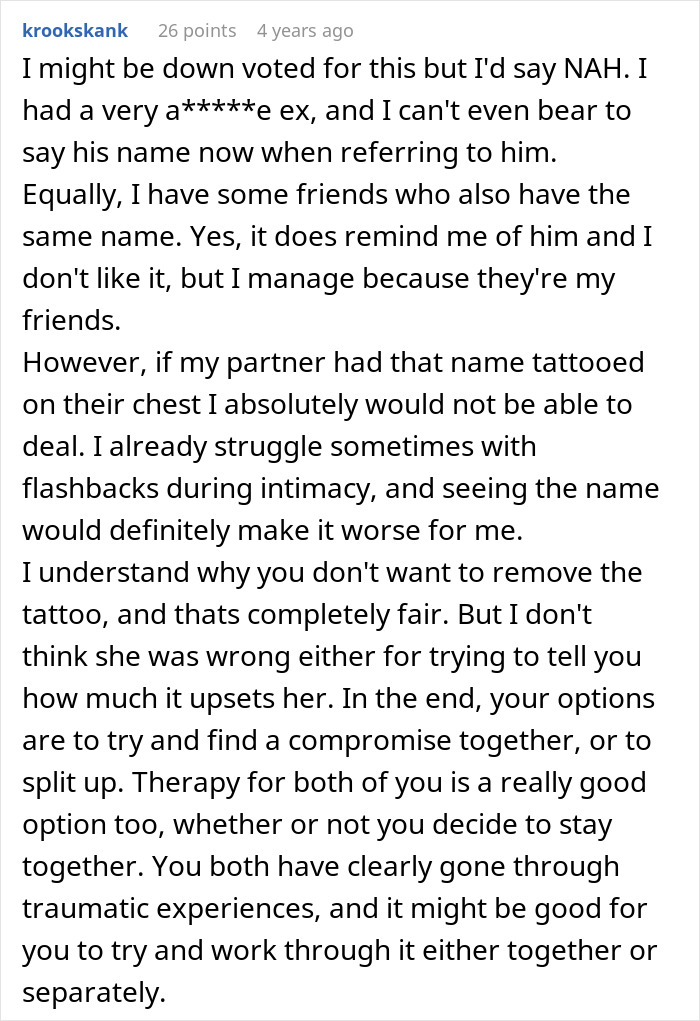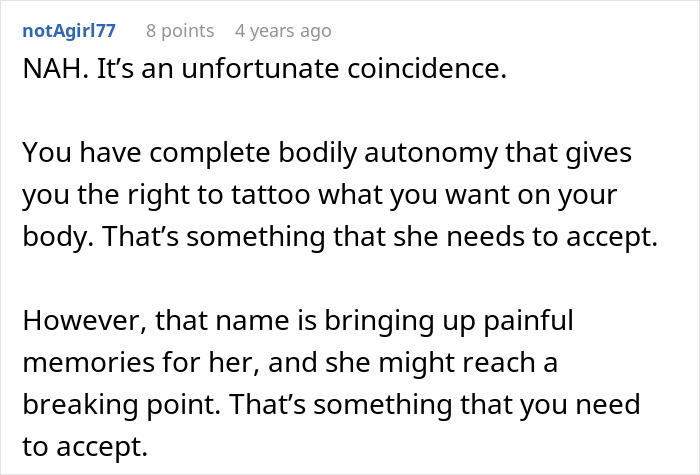Getting a sentimental tattoo has its drawbacks, but by and large, it’s understandable why someone might want to do it. But, as it turns out, sometimes the symbols, images and names that mean one thing to us, can mean something entirely different to, say, a partner, so navigating these questions can make or break a relationship.
A man asked the internet for advice when his girlfriend demanded he remove a chest tattoo of his passed away son’s name since, as it turns out, it was the same name as her ex. Netizens shared their thoughts and some gave a few suggestions on how to handle the situation.
A tattoo of a passed-away loved one could be meaningful to some folks

Image credits: Drazen Zigic / freepik (not the actual photo)
But one man discovered that his deceased son shared a name with his girlfriend’s ex
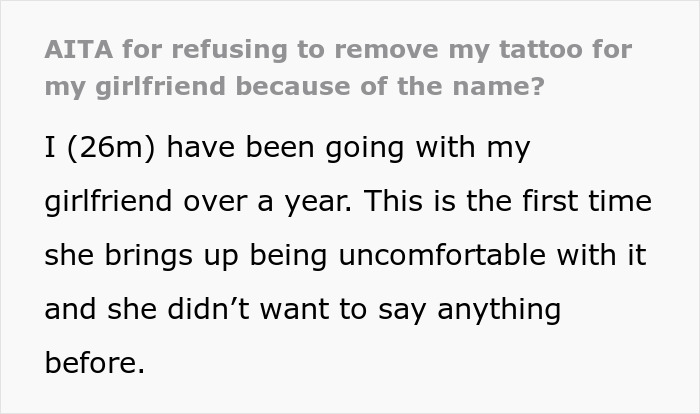



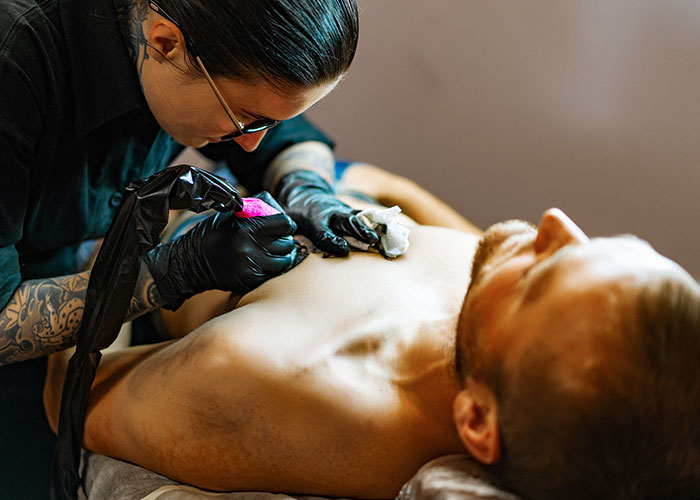
Image credits: Kireyonok_Yuliya / freepik (not the actual photo)




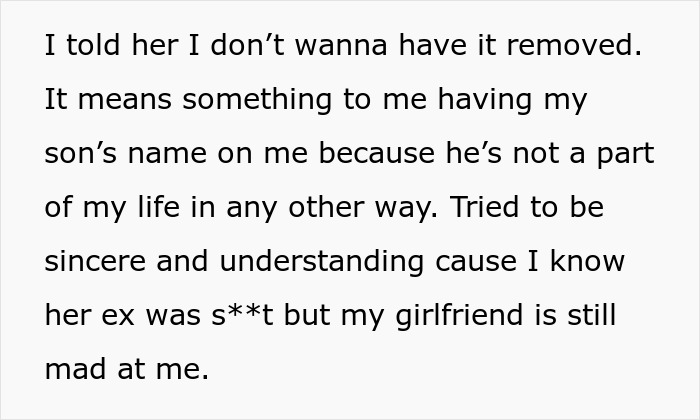

Image credits: EyeEm / freepik (not the actual photo)


Image credits: nameontattoo
There are places where one should and shouldn’t compromise in a relationship

Image credits: namii9 / freepik (not the actual photo)
Being in a relationship sometimes means compromise, but also respects personal boundaries. When the other begins to insist on something that is very personal, like the removal of a tattoo, tension and confusion can arise. Tattoos are ink on skin, but often they are memories, milestones, or aspects of identity. Having someone ask you to take part of yourself away is invasive, and it raises some serious questions about respect, autonomy, and whose control you are under in a relationship.
The most crucial thing to do when faced with this sort of situation is to take a step back and determine what is truly at stake. It seems at first glance to be a debate over body art, but at the root lies a concern of control and acceptance. A healthy relationship should give both parties room to be themselves without having to give up essential parts of their own selves. When someone pushes too much, it has the power to make the other person feel invisible, disrespected, even manipulated.
It is worth listening to what your partner has to say, as requests are normally made from a position of emotion. Perhaps the tattoo reminds them of something they do not feel at ease with, or perhaps they just do not like tattoos. You do not necessarily have to view it as they do, but you do need to listen and open the floodgates so you can communicate openly. You can express their discomfort without agreeing to change your body to fix it.
Setting boundaries is often harder in practice

Image credits: zinkevych / freepik (not the actual photo)
From there, boundary establishing begins. Boundaries are not about excluding someone, but about defining where you are. Being honest and explaining why the tattoo matters to you, what it signifies, and why you will not get it removed is not about disrespect, but about honesty. Boundaries are most effective when they are communicated honestly and respectfully, without apology or aggression. A respected partner should be able to hear that this is not negotiable. This is also an opportunity to consider the relationship dynamic in general. If your partner is unable to respect your autonomy in this issue, what does that suggest about how they handle other aspects of your independence? Requests regarding tattoos can sometimes be a sign of deeper concerns regarding control, insecurity, or acceptance. Asking yourself if this is a single request or part of a trend can help you determine what you are actually dealing with.
It’s awkward to be strong in your boundaries, especially if you don’t like conflict. But sticking to them is necessary. Your body is yours, and any request that crosses boundaries into altering it always must be your decision and your alone. Compromise in relationships works best when it’s things you can both give and take, not when it asks one to sacrifice a part of who they are for the sake of the comfort of the other.
If the conflict persists, it might be useful to propose other means of dealing with your partner’s emotions that do not include the removal of the tattoo. This might involve discussing the feelings it evokes in them, reassurance about your commitment, or actually creating new shared experiences that serve to drown out whatever unease the tattoo causes them. Solutions that are based in connection and reassurance, and not in demands, are much more long-term.
Ultimately, dealing with a partner’s request to remove a tattoo is not as much about body image, it is about standing up for your sense of self while being open to communication. You must be respectful of the feelings of your partner, but not at the cost of your liberty. Defining boundaries, being assertive, and being able to recognize when a request slips into control maintains not only your skin, but your integrity and your sense of self. A good relationship will honor that equilibrium, and one that does not might not be healthier than it seems.
Most thought she was being unreasonable


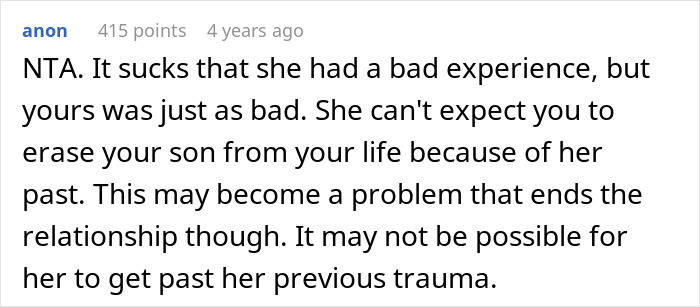
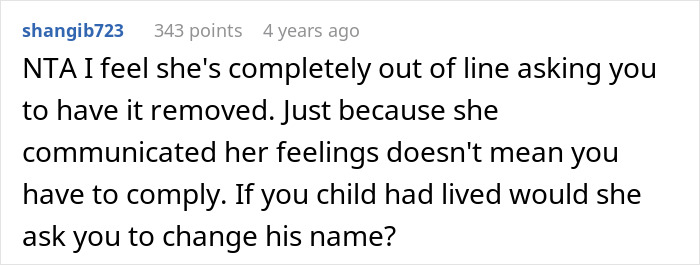


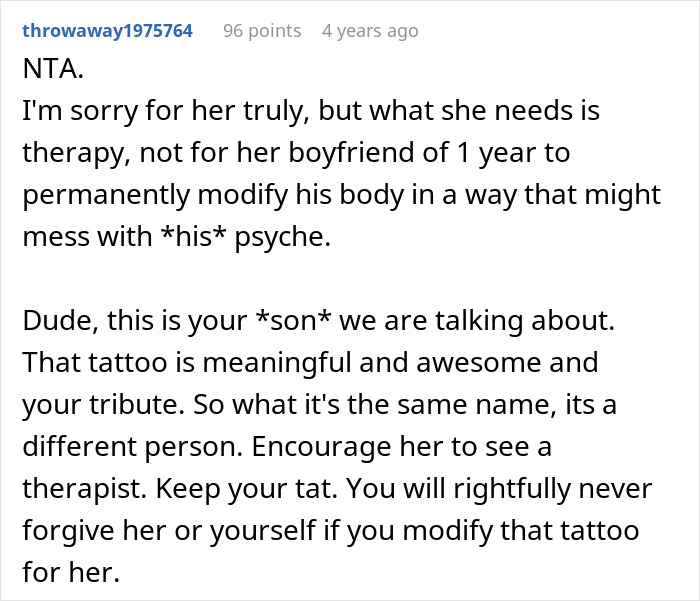

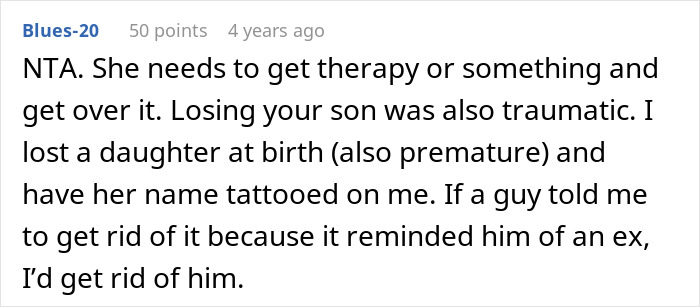

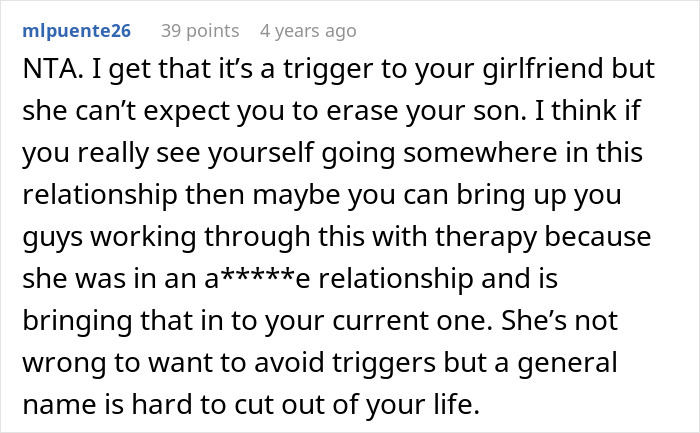


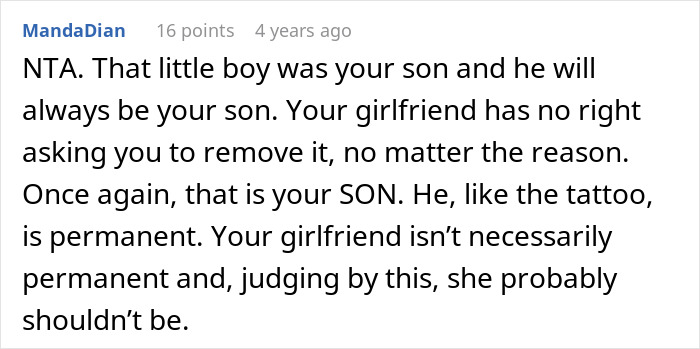



Some thought no one was to blaim
